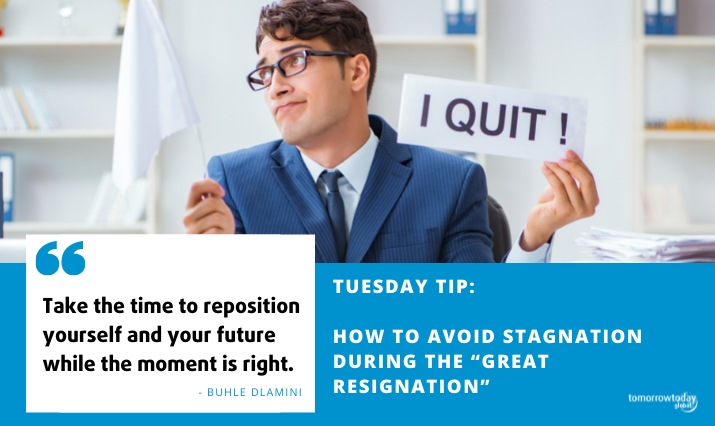Chances are that you have heard of “The Great Resignation” of 2021, also known as the “Big Quit”; which is the ongoing trend of employees voluntarily leaving their jobs in response to the pandemic.
The pandemic has made workers rethink their careers, work conditions and long-term goals, almost like a reset; many have chosen to call it quits in pursuit of a new and different future. You might know of people, (maybe you are one of them) who have joined the Great Resignation. On the other hand, you might be sitting there thinking about your options and what your future holds.
There are many reasons given for the great resignation, one of which is the shift most of us made (for the first time) to remote work.
According to the NPR Article by Andrea Hsu: “The great migration to remote work in the pandemic has also had a profound impact on how people think about when and where they want to work. “We have changed. Work has changed. The way we think about time and space has changed,” says Tsedal Neeley, a professor at Harvard Business School and author of the book Remote Work Revolution: Succeeding from Anywhere. Workers now crave the flexibility given to them in the pandemic — which had previously been unattainable, she says.”
But, for many people who have not quit their jobs they could also be suffering from the same effects of the pandemic and instead of quitting, are left with a sense of stagnation in their careers.
The New York Times article by Adam Grant, calls it “Languishing” as a result of the pandemic. “Languishing is a sense of stagnation and emptiness. It feels as if you’re muddling through your days, looking at your life through a foggy windshield. And it might be the dominant emotion of 2021. As scientists and physicians work to treat and cure the physical symptoms of long-haul Covid, many people are struggling with the emotional long-haul of the pandemic. It hit some of us unprepared as the intense fear and grief of last year faded.”
Feeling stagnant and stuck greatly reduces your motivation to work, study and to grow. You find yourself resorting to filling your time with time wasting activities and hardly feel like doing anything towards your personal growth and just do the bare minimum to remain employed. So how can you pull out of this stagnant space to find inspiration and excitement to do your best work again?
Take some time and revisit your goals that have been interrupted by this pandemic. Are you still on track with where you want to be in the future? Do your goals still make sense, or do you need to change course? What new goals do you need to pursue and what strategy makes sense for you to achieve them in this new reality? Take a good old pen and paper (notebook) and spend some time on this.
Over time we compromise our passions and settle for what is convenient and pays the bills, we stop striving and doing what we really love and are passionate about. This might be a perfect time to take a step back and reclaim what you really love doing. Ask yourself, what aspects of my work really energise me and fulfill me?
Once you have an answer, try to negotiate so that you can do more of what makes you come alive. The great resignation provides us an opportunity to renegotiate our positions with our employers and our clients. In this time of flux and change you can reposition yourself for success and fulfillment in your career.
Don’t let this period pass you by, do what you need to do to build back better as you move forward. Take the time to reposition yourself and your future while the moment is right.
About the author of today’s Tuesday Tip – Buhle Dlamini
Buhle Dlamini can speak to your leadership team about Unleashing Your Greatness and about Building Back Better AC/DC (After Covid/During Covid). Buhle helps teams create a winning culture by helping them unleashing their full potential. He also helps leaders and senior teams to have a strategic conversation about how to thrive during the current crisis and build back better into the future.


